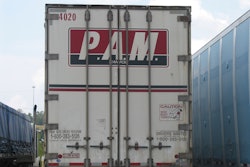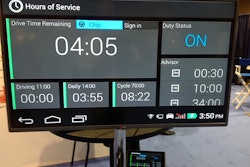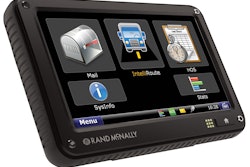![shutterstock_217677985[1]](https://img.ccjdigital.com/files/base/randallreilly/all/image/2015/03/ccj.shutterstock_2176779851.png?auto=format%2Ccompress&fit=max&q=70&w=400)
Everything in the shop had a place. And every tool in that shop was supposed to go back to its proper place when it wasn’t being used. But somehow, that never happened. I can hear it all to this day:
“Where the hell is the battery tester?”
“Who’s got the needle-nosed pliers?”
“Nobody knows where the impact wrench is? I guess the damn tools just get up and walk out of here!”
Wouldn’t it be nice if you could grab your smart phone when you’re missing something like that and electronically “call out” to the tool to find out where it is?
That, in essence, is the theory behind “The Internet of Things.” The idea, that one day very soon, every meaningful tool, appliance, vehicle or even apparel like shoes will have a piece of tech installed that will connect that item to the Internet and your world at large.
When we think of the Internet of Things in trucking today, we tend to focus on the rapidly evolving world of vehicle telematics and prognostication. But, in all likelihood, the reality of this trend will extend much deeper into our lives, if tech companies have anything to say about it (and they will).
Imagine you’re a truck driver in the very near future and your rig’s onboard sensors have detected that you’re down to a quarter of a tank of fuel and your coffee cup is empty. And, suddenly, the next billboard you see flashes an electronic message as you pass, advertising diesel prices at the next truck stop, which by the way, also has your favorite Espresso decaf freshly brewed and your favorite whole wheat/sesame seed bagels to boot.
Sound far-fetched? Not really. It already happens every time your log into the Internet now. I spend all day researching trucking topics online. When I get home, my Facebook page is filled with new and used truck advertisements.
In a very short period of time, you’re never going to run out of your favorite foods again. Your refrigerator will keep track of the items inside it. You’ll get an alert when that jar of salsa goes out of date. And a period reminder to throw it away until you actually bother to do so. If you run out of orange juice, the fridge will automatically update a shopping list on your smart phone so you’ll know to buy some more next time you’re at the grocery store.
Take that a few steps further, and you’ll be at your desk one day, get an alert that you need to go grocery shopping. You’ll quickly scan the handy list provided by your fridge, add or delete a couple of items, hit “Buy,” and the store will begin filling the order. Once it’s ready, a signal will alert your car, which will head off on its own to pick up the order and deliver it to your house. All you’ll need to do is have someone there to meet the car and put the groceries up. Odds are that job will fall to your teenage son, who will still manage to screw it up.
Is this technology going to be helpful? Or intrusive? How much do we really want computers anticipating our needs and doing our thinking for us? Those are just a few of the unknowns we’ll all face as this technology comes rushing at us. There will be benefits to the Internet of Things. There will be distractions. But above all else, there will be adjustments as we learn to operate and live in a vastly different world.











